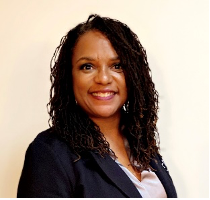Leadership
Amplifying Black and Brown Voices in Education Leadership
An interview with author Dr. Darlene Breaux on a new book for promoting change.
Posted August 31, 2021 Reviewed by Jessica Schrader

A study of 6,500 professors at top U.S. universities examined bias among higher education faculty, who shape their fields’ literature, dialogue, and direction. The researchers determined which professors turned down meeting requests—the type of thing that leads to mentorship and other opportunities—from Black and Brown students (as well as women), and they disaggregated findings by academic discipline. Guess which department had the second-highest rate of discrimination (nearly tying with business departments for first place, and beating fields like engineering, mathematics, computer science, and other sciences)? The answer is education (Milkman, Akinola, & Chugh, 2015).
Equity and inclusion are commonly mentioned in discourse within the education arena, but we are not achieving it in our institutions. Whether you are a leader of color or an ally, a new book offers support.
Dr. Darlene Breaux is a visionary leader who the Texas School Business magazine highlighted as a “Thought Leader and Innovator in Education.” She currently serves as vice-president and chair of the policy committee for the Alief ISD School Board. Breaux has tirelessly advocated for equitable education at the local, state, and national levels.
Breaux’s new chapter in the book Black and Brown Leadership and the Promotion of Change in an Era of Social Unrest addresses how Black and Brown leaders can use their voices to promote transformational change and change the educational experiences of those most marginalized. I have long admired Breaux, her leadership style, and her commitment to moving the field forward. I had the pleasure of interviewing her about Black and Brown leadership.
Jenny Rankin (JR): Tell me briefly about the book Black and Brown Leadership and the Promotion of Change in an Era of Social Unrest.
Darlene Breaux (FL): Leaders of color are in a unique position to lead transformational change that will impact those most marginalized. The book highlights the stories and voices of leaders of color in various contexts in order to learn from their experiences to move schools forward.
JR: What prompted you to write your chapter titled What Do You Do When Silence Is No Longer Golden?
FL: In my personal experience as an educational leader, I have often been in spaces where my voice is the only one that speaks up for the students and families not represented at the table. Ironically, I grew up being taught that it is appropriate to be seen and not heard, but the notion that silence is golden no longer sits well with my soul.
JR: Describe how you found your voice as an educational leader and the roles you played in those spaces.
FL: I recognized “the calling to speak is often a vocation of agony, but we must speak. We must speak with all the humility that is appropriate to our limited vision, but we must speak” (King, 1957). In this recognition, four roles emerged as necessary for promoting change as a leader. These roles were mediator, advocator, agitator, and activator. I used my skills as a trained mediator to serve as an intermediary between the community, district, and legislators to guide the parties as we struggled through difficult times and even more difficult decisions. I had to be an advocate and plead the causes while promoting the interest of those students in my district that were most marginalized by local, state, and national policies. There were times I used my voice as an agitator to stir up public awareness of issues and supported efforts for change. Finally, I understood that raising my voice was just the beginning, I had to activate others by taking thoughts, ideas, and concepts and turn them into actionable steps to make things happen.
JR: What advice do you have for educators or anyone reading your chapter about finding their voice in the broad space of education?
FL: Often, we find safety and security in staying quiet, but one’s silence serves no one. Following the 1957 guidance by Dr. Martin Luther King, Jr., who said “In the end, we will remember not the words of our enemies but the silence of our friends.” I implore you: Never allow the golden glow of your silence to diminish the realization of the power of your voice.
JR: Thank you for your time, and for all you do to help amplify historically underrepresented voices in our field.
References
King, M. (1967, April 4). A time to break silence. Paper presented at a meeting of Clergy and Laity Concerned at Riverside Church in New York City, NY.
King, M. (1957, November 17). The trumpet of conscience. Paper presented at Dexter Avenue Baptist Church in Montgomery, AL.
Milkman, K. L., Akinola, M., & Chugh, D. (2015, November). What happens before? A field experiment exploring how pay and representation differentially shape bias on the pathway into organizations. Journal of Applied Psychology, 100(6), 1678-712. https://doi.org/10.1037/apl0000022.


